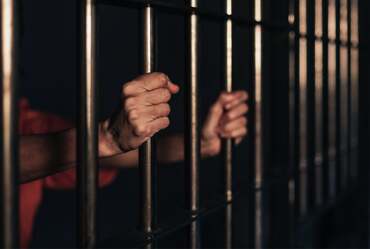Search

In New York, felonies are categorized by severity, from Class A (the most serious) to Class E (the least). Class B felonies are considered extremely serious crimes that carry significant prison time, often up to 25 years. If you’re facing a Class B felony charge, it’s vital to understand the nature of the offense, the penalties involved, and your legal options.
This article outlines some of the most common crimes classified as Class B felonies in New York, along with the potential consequences.
Under New York Penal Law, a Class B felony is a high-level crime that falls just below the most serious charges, such as murder (Class A-I felony). Individuals convicted of a Class B felony face a mandatory minimum sentence and long-term consequences, including:
Whether the charge is for a violent or non-violent offense will affect the exact penalties imposed.
New York law makes a clear distinction between violent and non-violent felonies. Violent Class B felonies tend to carry stricter sentencing guidelines. Some of the most common include:
This charge typically involves intentionally causing serious physical injury to another person using a weapon or dangerous instrument. It’s one of the most frequently charged violent Class B felonies.
If a person forcibly steals property and causes serious injury or uses a deadly weapon during the act, they can be charged with first-degree robbery—a serious Class B felony.
This includes non-consensual sexual intercourse involving force, threats, or with a person who is physically helpless, underage, or mentally incapacitated.
This crime involves causing the death of another person under circumstances that do not meet the legal definition of murder but still reflect intent or reckless behavior.
Though less physically aggressive, non-violent Class B felonies can still carry long prison sentences and lasting damage to a person’s future. Common examples include:
Selling narcotics or controlled substances (like heroin, cocaine, or fentanyl), especially near schools or to minors, is classified as a Class B felony.
This is New York’s version of the RICO Act, aimed at dismantling organized crime rings. Running or participating in a corrupt enterprise qualifies as a Class B felony.
Even possessing such material with the intention of sharing it—regardless of whether it was shared—is treated as a Class B felony.
Offering or giving something of value to influence a public servant’s official duties in connection with a Class A felony also qualifies.
The sentencing guidelines vary depending on factors like whether the crime was violent, whether the defendant is a first-time or repeat offender, and if there were aggravating circumstances. However, general penalties include:
Judges have limited discretion in violent felony cases due to mandatory minimum sentencing laws.
Being charged with a Class B felony does not mean automatic conviction. Common defense strategies include:
A skilled criminal defense attorney will analyze every aspect of your case to develop the strongest possible defense.
Class B felonies in New York encompass a wide range of serious criminal offenses—from violent acts like assault and robbery to complex white-collar crimes and drug trafficking. A conviction can derail your future, costing you years of freedom, employment opportunities, and your reputation.
If you or someone you know is facing Class B felony charges, consult with an experienced criminal defense attorney immediately. Understanding the charge is your first step—fighting it effectively is the next.